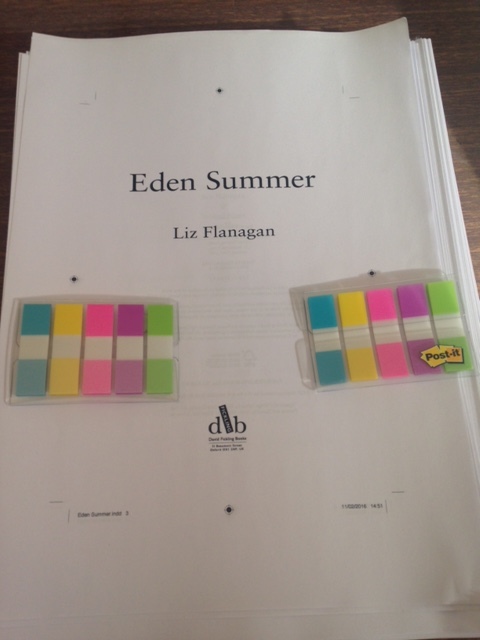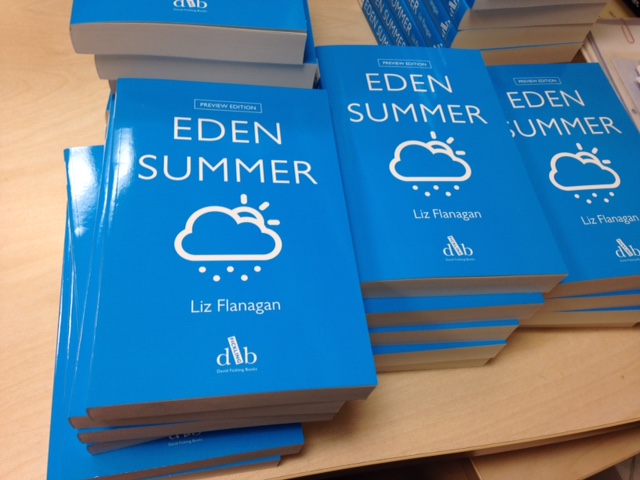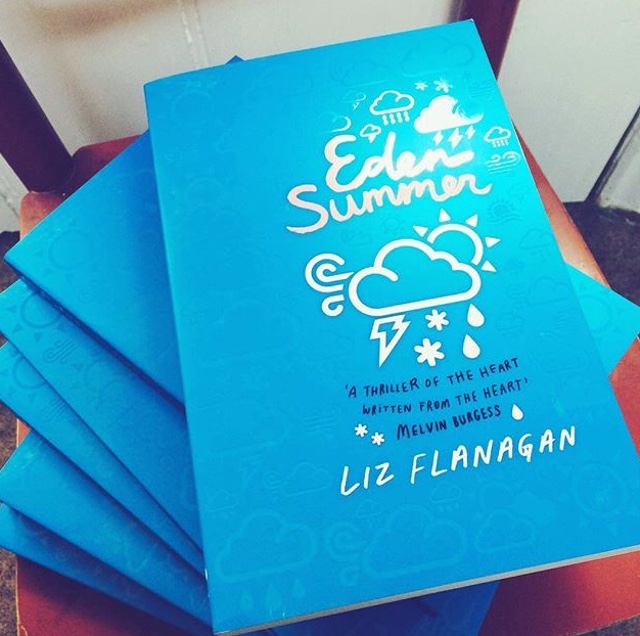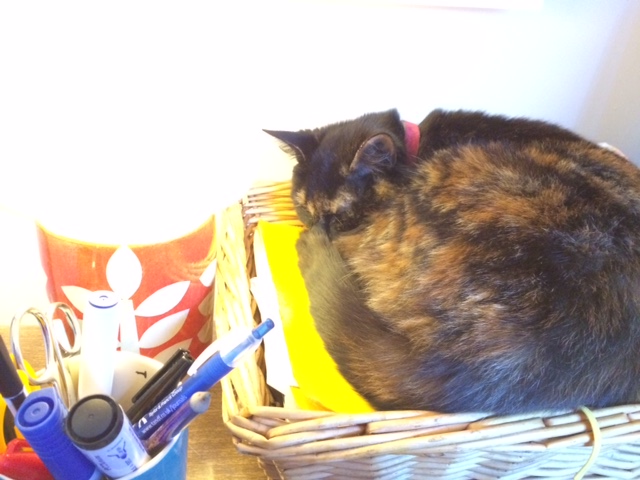I’ve always loved working with other people from my first job onwards – talking to people, sharing ideas, feeling part of a team – whether I was working as a waitress, a book editor, or running a writing centre. So why did I end up in one of the most solitary jobs ever? I spend days, weeks, years, alone at my desk, chasing ideas, wrestling with imaginary characters and turning it all into stories.
Not quite alone at my desk: my cat Arya keeps me company
It’s certainly true that much of the writing life can be isolated and sometimes lonely. That’s why I joined all the groups I could find - SCBWI, Society of Authors and a local critique group – so I can connect with other like-minded authors for support, advice, training (and gossip!).
Except, as I learned when I was lucky enough to sign a publishing contract with David Fickling Books, making a book is about a collaborative an activity as you can find, especially in the final stages, and I love this part of it.
Who is involved in making a finished book and putting it in the hands of readers? It’s slightly terrifying (I don't want to let them down!) to count them up:
In this case, my agent Ben Illis has been there from the start, reading drafts, negotiating contracts and checking in with me all along. My editor Rosie Fickling has believed so deeply in this project, offering insight and direction when I needed it most. And the wider editorial team, including Bella and Anthony, have been supportive too.
And it’s now that my part is almost finished that things get really interesting!
I’m expecting the copyedited manuscript any day now. This means that an eagle-eyed editor, Cecilia, has gone through my text with care and attention to detail, seeking perfection in grammar and punctuation, smoothing out continuity errors – didn’t this person have green eyes in chapter two? – and steering towards clarity of meaning. When we’ve finished, the tidied-up text will be sent to a designer to be flowed into page layouts.
There are talented visual artists at work! One artist has produced a stunning cover image, which will be revealed soon. The cover design is then created by Alison, who is expert in colour, typography and all the subtle balance that goes into book jacket design. Yet another artist will work on a map of the imaginary city where the story happens – this is a dream come true for me. I’ve sent notes and a Pinterest board to give them some clues, and I can’t wait to see what they create.
Here's past evidence of the team's work: beautiful cover design by Alison Gadsby and a German edition of Eden Summer next to the UK one, as negotiated by Bron at DFB, translated by Sabine Schulte and published by Aladin Verlag in Germany!
The Bologna Book Fair, where work goes on from dawn till dusk, fuelled by super strong coffee and love of children's books...
The Foreign Rights Director, the brilliant Bron, is preparing her sales pitches for the Bologna Book Fair next month, and she has asked me all about this story. She’ll meet with editors from publishing houses all over the world and present the new titles from DFB, knowing from years of experience which editors are looking for which books.
At YALC last summer with the wonderful Jasmine from DFB
Then there’s the Sales and PR team – Phil, Carolyn, Sabina, Jasmine - who are already thinking about how best to share this book with the world, and I know they’ll be full of ideas. I am looking forward to working with them as we get near the publication date. They have contacts with booksellers, bloggers, journalists and more, and will be spreading the word about this new book and which readers it might suit...
And that’s not all. I know from my experience with my debut novel that publication will bring me into contact with many dedicated professionals - booksellers, librarians and teachers among them – who love books and are passionately committed to children’s reading.
I feel so excited right now, realising the story isn’t just in my head any more. It’s taking shape, through the creativity and hard work of all these talented people. Soon it will fly out into the world, into the hands of readers, and the rest will be up to them.
I am extremely lucky to be in this position, so I wanted to take a moment to say thank you to each person in the collaboration, for all the behind-the-scenes elements that it takes to build a book. From the first meeting with everyone at DFB – including David and Simon who must be thanked too! – I knew I wanted to be part of this team.
Thanks for believing in this story. I hope it proves worthy of your faith it it.
Meanwhile, I'd better get busy writing the next one...











